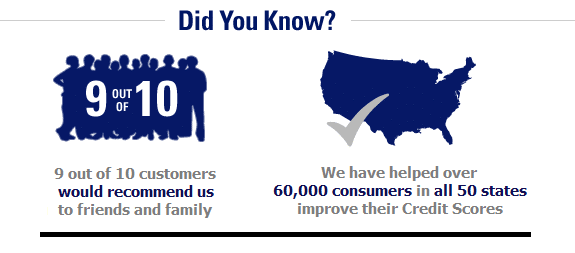Getting Your Credit Ready To Buy A Home
With interest rates and home prices so low, and rental prices so high, you may finally be considering buying a home.
And although purchasing a house is one of the best investments you can ever make, getting a mortgage in today’s economy is becoming more and more difficult.
So how do you get your credit ready to buy a home?
Here are 4 tips to help you improve your chances of getting a mortgage within the next 12 months.
1. Pay your bills on time.
Payment history makes up 35% of your credit score, and although you may have had past issues with paying your bills on time, stringing together a full year of on-time payments will show lenders and creditors that you have made a commitment to get your finances in order. The greatest benefit of paying your bills on time will of course be to your credit score.
2. Limit your inquiries.
Inquiries account for approximately 10% of your credit score and having too many of them will lower your credit and make it a lot more difficult to obtain a mortgage. So make a commitment to stop applying for credit for a period of 12 months. This means no new cell phones, credit cards, or any other loans where your credit will need to be checked.
This may not be the easiest thing to do, but consider that after just 12 months, you will be in a prime position to get the home of your dreams.
So practice some self-control and don’t incur any new inquiries.
3. Pay Down your Debt.
If you have debt, whether it is a credit card, auto loan, or personal loan, you need to reduce it.
Approximately 30% of your credit score is calculated by how well you manage your debt and ideally, your credit utilization rate (the ratio of your debt balance to your overall credit limits) should be at or under 20%. (Example: If you have a credit card with a $1,000 limit – your balance should never exceed $200.)
Also, under new lending regulations, consumers who attempt to get a mortgage will need to have a debt-to-income ratio of 43% or less. This ratio will include the potential new mortgage payment.
This means that at the max, 43% of your monthly income will have to cover all of your debt payments, as well as your mortgage payment. And the only way to lower your debt-to-income ratio is to either increase your income or decrease your debt. Considering the mortgage lender will be looking at your average income over the last 2 years, paying down your debt may be the only realistic way of lowering your debt-to-income ratio.
4. Fix your Credit.
If you have derogatory accounts in your credit reports that are lowering your credit scores, they will need to be addressed. Fixing your credit is quite possibly the most financially rewarding investment that you can ever make. But make sure that you do your research before doing it yourself or hiring a credit repair company to help you. Here is an article that will help you get started to fix your credit.
Follow this short guide to get your credit ready to get a mortgage, and you’ll be a homeowner in a few short months.












